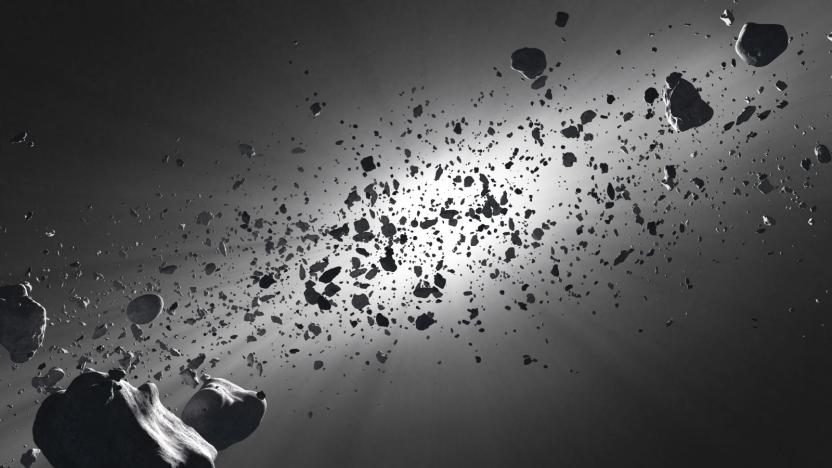Yarkovsky effect
Latest

'Asteroid Day' is a good time to learn about the threat of space rocks
On June 30th, 1908, more than 770 square miles of remote Russian forest were obliterated from the face of the Earth when a relatively small meteor, estimated at only around 400 feet across, unleashed 15 megatons of energy above the Stony Tunguska River. One hundred and nine years later, humanity knows precious little more about the dangers that lurk within our solar system than we did in 1908. But a recently founded "global day of education" aims to bring the existential threat that space rocks pose to the forefront of our collective consciousness.

NASA asteroid mission could explain how life began (and how ours might end)
There's a slight chance that the Earth could get hit by an asteroid in about 170 years, but don't you worry -- NASA's all over it. This week, the agency announced a new mouthful of a mission known as Origins-Spectral Interpretation-Resource Identification-Security-Regolith Explorer, or OSIRIS-REx, for short. The $800 million initiative, part of NASA's New Frontiers Program, will send a spacecraft to link up with 1999 RQ36 -- a nearby asteroid that's likely rich in carbon and other organic molecules that could explain how life forms originated. After about four years of space travel, the craft should get close enough to map the asteroid's surface, before using its robotic arm to extract at least two ounces of material and return it to Earth by 2023. Scientists will also pay close attention to something known as the Yarkovsky effect, which determines how an asteroid's path changes as it absorbs and emits energy from the sun. OSIRIS-REx will attempt to measure this affect for the first time, perhaps allowing NASA to predict the trajectories of potentially hazardous asteroids -- including the RQ36. The 1,900-foot wide rock is expected to approach Earth by the year 2182 and, according to recent estimates, there's a one in a thousand chance that it could actually strike our planet. Now if you excuse us, we have to go prepare a bunker for our great-great-grandchildren. Head past the break for a video and full press release.

